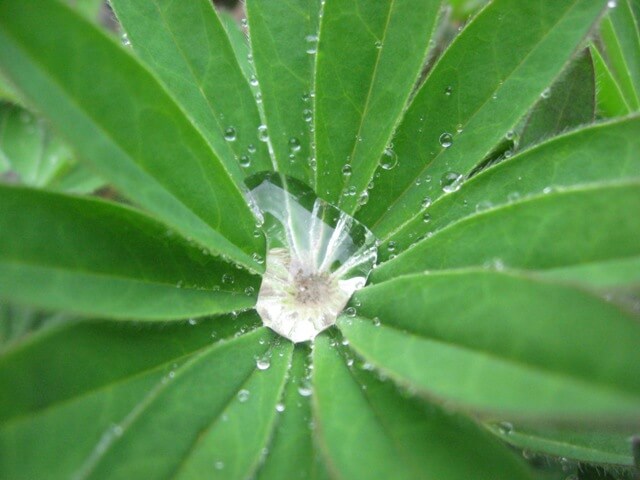On an island where being “from here” holds a lot of value – because those from here are really proud of Cape Breton, and of being Cape Bretoners – it makes sense that an opposite category, that of being “from away”, would exist.
But are these categories useful? Or do they actually harm our communities?
I think they do serve a purpose, but that we have to be careful how much value we place on “where you’re from”.
My own parents are from “away”. My Dad was born in Ohio and lived in New York before moving to BC. He met Cape Bretoners out west who told him the most beautiful place in Canada was on the opposite coast to the one he was on. So he came east and bought land in Baddeck Bay.
Mum was born in Quebec City and went out West to work and find some adventure. She met my Dad and came back East with him.
Both of them have lived here ever since, about thirty years.
Are they Cape Bretoners?
They had two kids, one born in BC (me) and one born in the Annapolis Valley (my brother). Both kids were raised pretty much exclusively on Cape Breton Island since infancy.
Are we Cape Bretoners?
It’s a complicated issue. There’s this cultural myth that says Cape Bretoners – well, all folks from the Atlantic Provinces, really – are over-the-top hospitable people, that they’ll make you feel ‘right at home’. And our tourism industry depends on this myth to keep people coming here.
But at the same time, if our culture is all we really have (and on this island where pretty much all major industry is gone, that is the case), then we’re going to hold that culture close to our chests and dole out membership very carefully. Not just everyone who crosses the causeway and hangs out here for a while gets to be a Cape Bretoner.
(I say ‘we’ even though I feel that I have one foot in both camps, that of the locals and that of the CFAs.)
So what the heck does it mean to be a Cape Bretoner? Who decides who does and doesn’t belong? Do these distinctions matter, especially for our future?
I’d really love to know what you think about this. Comment away, and it’s OK if you want to post anonymously – I realize this can be a touchy subject, especially in small communities.





well, this is a complex matter??? I don’t know but if you were to move to Iran or Chile or Iceland ….. when would you no longer be a CFA in those countries???? it boils down to ROOTS….. where are they and how deep?? I believe it is 2 generations ……. if you have lived here since you were little and your children are born here then “they” are Cape Bretoners and then you a member by association .lol Just sayin’,……. for what it’s worth??????
That sounds about right – and it’s how I feel. (Not necessarily what I think is “right” or what “should be”, but it’s how I feel in my gut, that my kids will be Cape Bretoners, but I am not yet one.)
Great topic ! I think being a Cape Bretoner is in the heart. It doesn’t really matter what people think, as long as you feel it, you’re a Cape Bretoner. Plain and simple.
If Cape Breton is to ‘Dream big’ and to be all that it can be, that comes with openness to others, to cultural difference and to different perspectives.
Openness to others is certainly important, yes. Especially as the ‘original population’ of Cape Bretoners with deep, deep roots is declining, and immigrants are increasing.
Hey there Leah.
I was born in Halifax but grew up in various parts of Eastern Canada. I met my husband who was born in New Glasgow but raised in Sydney from the age of 2, while we were both living in Halifax. We then moved to New Brunswick and in 1989 we moved here with our two daughters when they were 3 and 2 years of age, (one born in Hfx and one born in Fredericton).
We moved to Cape Breton because my husband’s employer offered us the opportunity and we jumped on it. We both loved Cape Breton and we knew we could afford to buy our first house here and that we might actually get to know our neighbours, unlike where we had been living before.
We have spent the last 23 years raising our daughters, working and volunteering in our community of Sydney as well as our summer community of Margaree.
We own property here, pay taxes here, live and work here, contribute to the economy here and volunteer here with the purpose of helping to make our community healthy and strong and we’re pretty dedicated to staying. Even though we acknowledge that none of us were born here, my husband, daughters and I consider ourselves to be Cape Bretoners. If we were at a comedy club and the comedian asked the audience: “Is there anyone here tonight from Cape Breton?” We’d clap and shout ‘wooohoo!’ in a heartbeat.
In my opinion, anyone who choses to live and contribute to a community becomes a valid member of that community and therefore becomes a part of the collective culture. We all bring where we’ve been and who we are to wherever we are at any given time.
Webster’s definition of ‘community’ is: a unified body of individuals. That sounds about right to me.
Thanks for your comment, Teena Marie! I would love to interview you sometime. I’ll be in touch!
There are a couple of theories I can think of which might explain some reluctance on the part of Cape Bretoners to recognize CFA’s as ‘official’. I could be completely wrong but it’s just my take 🙂
The first is that many Cape Bretoners are clannish, thanks to our Scottish roots. It was sort of bred into folks that family connections are of the utmost importance and everyone else was a mild threat until proven otherwise. This kind of ‘paranoia’ was compounded by the fact that we wound up here as a result of cultural persecution. My 97 year old great-uncle (a MacDonald) was STILL leery of the Campbells even though the Glencoe Massacre happened a gazillion years ago!
The second is that we are an island. I think there is something about living on an island, whether it be in the Maldives or here, which creates an ‘us against the world’ mentality. With good reason too. After all, until the advent of causeways, bridges and airplanes, our connections with the outside world were unpredictable at best. It would make sense to form exceptionally strong social bonds because there is safety in numbers.
I believe these values have been handed down from generation to generation, and even though they’ve evolved somewhat, there are still vestiges there.
Are these viewpoints valid in this day and age? I don’t know. I certainly don’t agree with them. It’s what’s in your head and heart, not necessarily your blood or location that makes you a Cape Bretoner.
I must say though, there is a strange cosmic connection among Cape Bretoners. I have lived in Quebec for several weeks on two different occasions and both times stumbled upon Cape Bretoners. The first time I randomly bumped into a woman from Sydney River at a zoo, and the second time I was randomly placed in an apartment with another Cape Bretoner and a guy from Vancouver who’s mother happened to be from Inverness. Then all three of us ran into a guy from Port Morien! haha
I love, love, love this comment. (I mean, I love all the comments because they are people connecting with me. But, this one especially.)
I think this makes a lot of sense. The clannish thing was something that I hadn’t fully articulated yet, but was heading towards. But I’m glad that you, someone with actual Scottish roots here, are the one who stated it (as opposed to say, me, because I don’t have that background and would only be presuming what it’s like to be someone with that background).